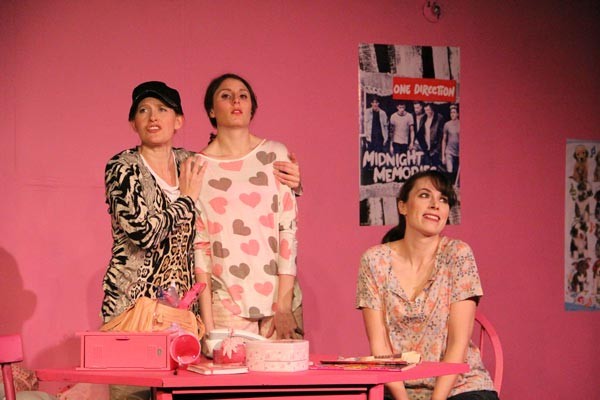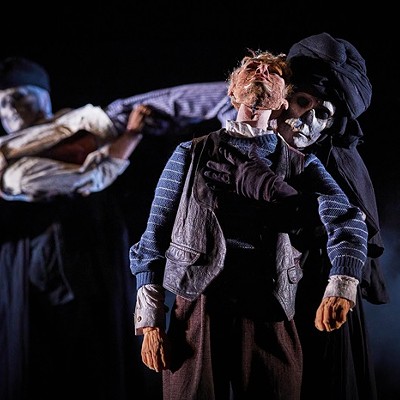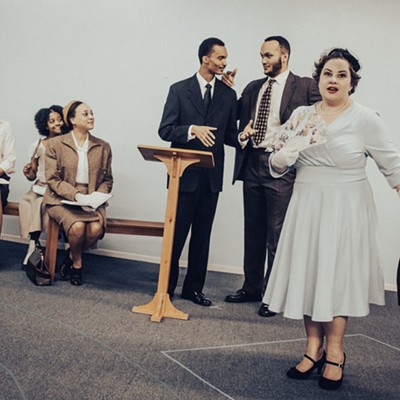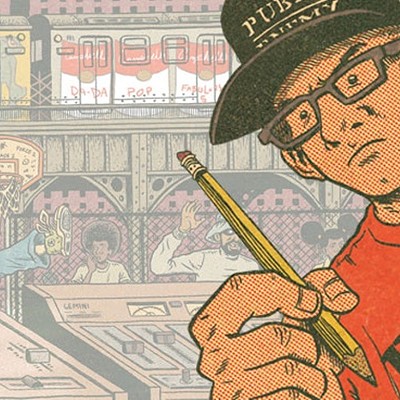There are some worthy observations in 12 Peers Theater's premiere production of Existence and the Single Girl. But the laughs are hard to come by in this frenetic but lumpy comedy. Matt Henderson's instincts as one of Pittsburgh's best comic actors don't support him as well when he switches to playwright mode.
The title, of course, refers to Sex and the Single Girl, the culture-changing how-to manual that made Helen Gurley Brown famous in 1962, and provided the modus operandi when she took over as editor of Cosmopolitan magazine, in 1965. Half a century later, Cosmo still thrives on a diet of selling sex in a world very much changed from pre-Pill days.
The alternative universe conjured by Cosmo combines with the over-sexualization of adolescent divas to drive Single's plot. The story starts with 12-year-old Ashley confused by life. Her helicopter parents certainly didn't encourage any growing up, but that doesn't jibe with the premise that a Cosmo/Britney Spears trajectory is the way to happiness.

OK, it's supposed to be a farce. The characters are cartoons so one-dimensional that their interactions are like leaves rustling. None is particularly sympathetic, but Diana Ifft's portrayal of a multi-tasking psychologist makes her fascinating in the snake sense; the shrink might be even more repellent than a snake. Alyssa LaVaccca nicely slithers from pre-teen angst to unwilling stardom, with occasional snatches at normality. Valentina Benrexi survives in the thankless role of doting Mommy, and Ross Kobelak hits all the discordant notes of the self-contradictory Blaine.
The basic bedroom set, designed by director Todd Betker and 12 Peers' founding artistic director Vince Ventura, seems to be more suited to a 4- to 6-year-old girl. Perhaps the Disney Princesses and Barbie dolls symbolize the earlier and earlier sexualization of American girls by pop culture. But why isn't this reflected in the dialogue?
There are occasional chuckles in Single, augmented by good beats in the original music by IMD2music. But as a whole, it doesn't flow.














